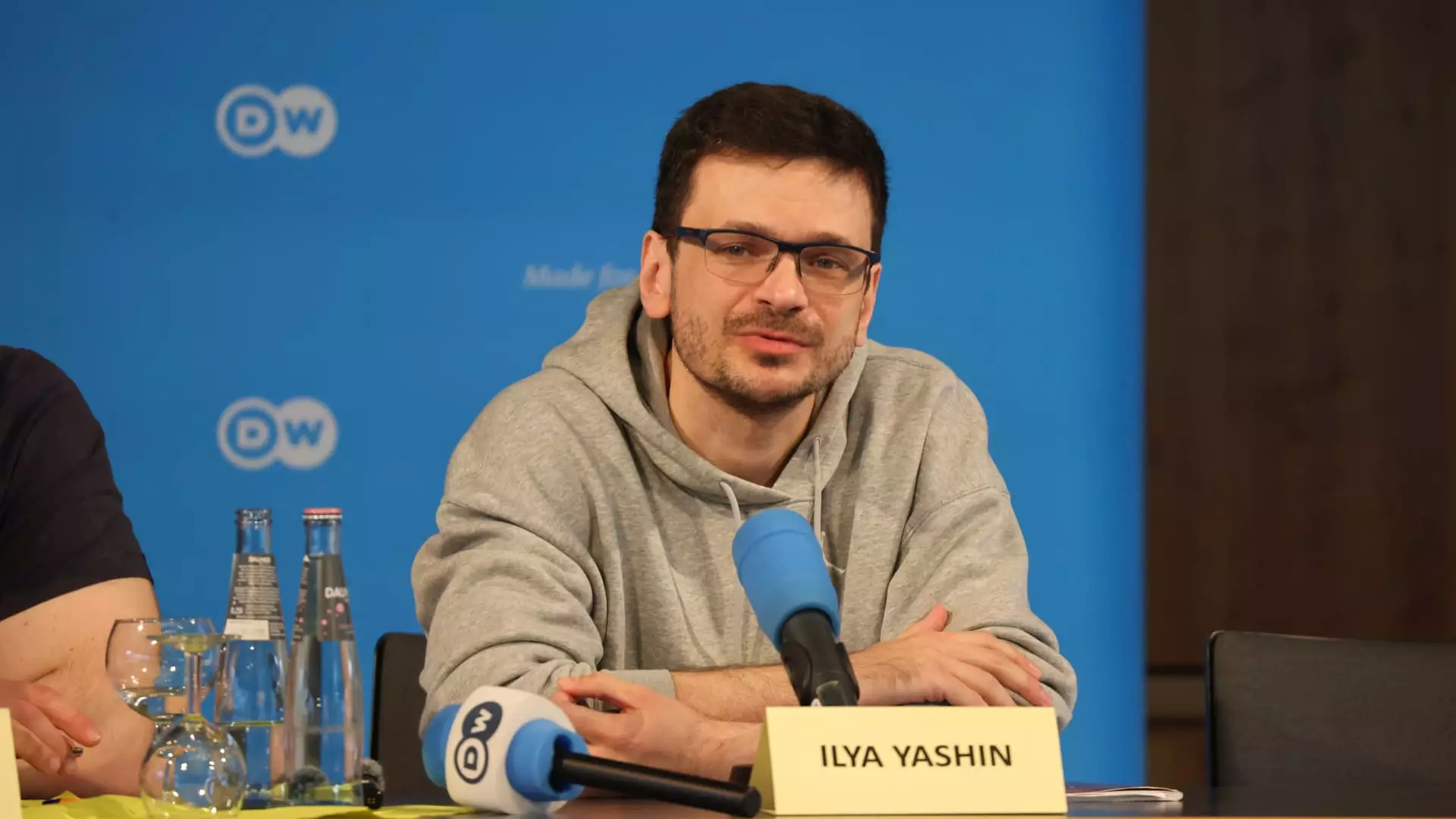Upon his release in a historic prisoner swap, Russian opposition activist Ilya Yashin expressed his unwavering commitment to continue his political fight against President Vladimir Putin even from abroad. Despite the seemingly positive outcome of being freed from jail, Yashin’s anger towards his forced deportation was palpable. He criticized the decision to deport him against his will, emphasizing that he had not consented to being part of any exchanges. His emotional reaction during a news conference in Bonn showcased his strong will to return to Russia and pursue his activism on home soil.
Yashin’s sentiments towards the Western governments involved in securing his release were not of blame, as he acknowledged the difficult moral dilemma they faced. However, his ire was directed solely at the Kremlin for expelling him as a political rival against his wishes. He emphasized that the expulsion was not a mere prisoner swap but an illegal act of forcing him out of Russia. Yashin’s desire to go back home was evident, despite his pledge to continue his work for Russia from abroad. The Kremlin’s actions were seen as obstructing his fundamental rights as a citizen and an activist.
At their first public appearance following their release in Germany, Yashin and his fellow activists, Vladimir Kara-Murza and Andrei Pivovarov, displayed a remarkable resilience and determination to pursue their goals. Despite the hardships faced in Russian prisons, they seemed fired with resolve and well-informed about global events. Kara-Murza’s adamant stance against Putin, whom he labeled as an illegitimate usurper, highlighted the unwavering spirit of these activists in their quest for a free and democratic Russia. The commitment to continue their fight and secure the release of all political prisoners exemplified their unwavering dedication.
Kara-Murza recounted his experiences in prison, including the psychological torture he endured and the bleak certainty of never seeing his wife again. He criticized the manner of his release, considering it an illegal expulsion under Russian laws. His refusal to sign an appeal for clemency, where he denounced Putin as a dictator and murderer, spoke volumes about his unwavering principles. The difficulties faced by German Chancellor Olaf Scholz in making the decision to secure their safety by releasing a convicted murderer shed light on the complex ethical dilemmas involved in such operations.
The accounts of psychological torture, limited contact with loved ones, and solitary confinement shared by the freed activists highlighted the extreme hardships they endured during their imprisonment. Kara-Murza’s revelation of being told by a prison doctor that he had a limited time left to live due to poisonings he suffered underscored the grave consequences of their activism. The lack of access to religious practices, such as attending church, further exemplified the oppressive conditions they faced behind bars.
The resilience and determination exhibited by Russian activists like Yashin, Kara-Murza, and Pivovarov in the face of adversity and oppression serve as a beacon of hope for a democratic and free Russia. Their unwavering commitment to their cause, even in exile, is a testament to the indomitable spirit of those fighting for justice and human rights in the most challenging circumstances. The international community must continue to support and amplify the voices of these brave activists as they navigate their path towards a brighter future for Russia.


Leave a Reply